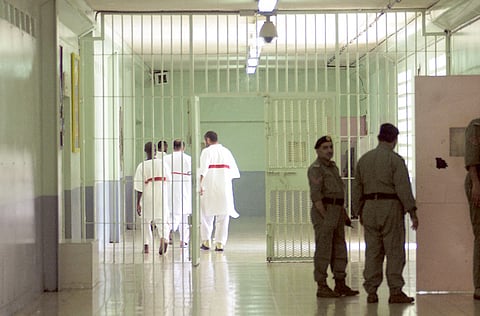Police log 24 human trafficking cases in 2012
Bangladeshi housemaids top the list of human trafficking victims in the UAE

Dubai: Authorities have logged 24 human trafficking cases in Dubai in 2012, the same figure recorded in the previous year.
Last year, the number of human trafficking cases reported to police was 24 with 67 people involved in those cases and 39 victims rescued in those cases. Twelve cases resulted in convictions while six cases were closed with no evidence and three of the suspects were acquitted, two cases were postponed and one was transferred to adultery investigators.
In 2010, there were 35 human trafficking cases with 90 accused in those cases while the number of victims was 61. The number of human trafficking cases referred by the Dubai Police to the Dubai Public Prosecution during the first quarter of the current year is seven cases, said a top official with Dubai Police.
Dr Mohammed Abdulla Al Murr, director of the Human Rights Department at Dubai Police, said most cases took place in poor countries which export labourers due to the social condition in those countries. Most of the people involved in human trafficking cases are from Asian countries and former Soviet countries.
The majority of victims, around 58 per cent, had come from developing countries with low living standards and had only basic elementary education, he said.
“Some of the Arab countries facing conflicts also have the problem of human trafficking,” he said.
Al Murr said that some of the suspects were referred by the police to Dubai Public Prosecution for forcing victims into prostitution. He said that Dubai Police have a specialised section to combat human trafficking cases and to find evidence.
“We have to differentiate between the cases of prostitution and human trafficking. In some of the cases, a woman works with an agent to run a prostitution business and that is not human trafficking,” he said.
Bangladeshi housemaids top the list of victims of human trafficking from 2008 till 2012.
“There significant efforts by police to combat human trafficking, in collaboration with the Ministry of Interior and international organisations,” he said.
Dubai Police said around 88 per cent of the victims were women and 12 per cent were younger than 18.
Awareness was the key to fighting human trafficking, he said.
He said the cases were reported to police from abroad in which police from foreign countries contacted authorities about human trafficking cases in Dubai or sometimes a customer of a victim of human trafficking approaches the police to report a place where they force women into prostitution, sometimes the victims run away and they approach the police.
“We report the cases to the criminal and investigation department who in turn investigate the case. We free the victims and we take legal action against the accused,” he said.
“We help the victims and we support them. The first step is that the victims are taken to a women and children foundation in Dubai. If they want to go to their home countries we help them to go and if they want to stay and work here we help them too.”
When a woman or child chooses to return to her home country, he said, Dubai Police inform thosercountries to inform them that the woman or child is a human trafficking victim and needs protection.
A centre was set up by the Dubai Police to monitor human trafficking, tackle the sex trade and respond to labour violations.
“We implemented field studies and training, and acted globally to combat traffickers and provide necessary services for victims,” said Al Murr.
“Our centre is the first of its kind established among Arab countries to tackle and combat human trafficking This part of combating crimes requires teams and units specialised in combating human trafficking due to the sophistication and complications of these crimes such as being able to differentiate between the nature of the crime, providing support to the victim and being able to arrest the entire network involved in these crimes,” he said.



